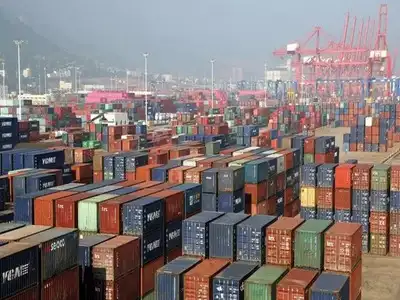
In a significant diplomatic move, India has imposed restrictions on Bangladeshi exports to its north-eastern states, citing concerns over recent statements and actions by Bangladesh’s interim government. This decision underscores the delicate balance of regional politics and the impact of diplomatic rhetoric on bilateral trade relations.
Backdrop of Rising Tensions
The catalyst for India’s decision stems from remarks made by Bangladesh’s Chief Adviser, Md Yunus, who suggested that Bangladesh could leverage its control over access to the Bay of Bengal to influence the prosperity of India’s north-eastern states. Such statements have raised alarms in New Delhi about potential territorial ambitions and the strategic use of trade routes as leverage. These concerns are compounded by reports of rallies in Dhaka supporting the annexation of north-eastern states, further straining diplomatic ties between the two nations.
Strategic Implications for Northeast India
The north-eastern region of India has historically relied on Bangladesh for access to the Bay of Bengal, facilitating trade and economic activities. Under the previous Sheikh Hasina government, agreements were established granting north-eastern states access to Chittagong port, benefiting both nations economically. However, the current interim regime’s approach has cast doubt on the reliability of these arrangements, prompting India to reassess its trade policies to safeguard its regional interests.
Security Concerns and Historical Context
India’s apprehensions are not solely based on economic factors but are also rooted in security considerations. There are fears that Bangladesh’s growing ties with Pakistan could lead to the reactivation of ISI cells within Bangladesh, potentially destabilizing the north-eastern states. This concern is particularly pertinent given the historical context of insurgent activities in the region, which were addressed through cooperation between India and Bangladesh in the past.
Economic Impact and Trade Dynamics
The restrictions imposed by India affect approximately 42% of imports from Bangladesh, amounting to goods worth around $770 million. This move is expected to have significant implications for bilateral trade, especially in sectors where Bangladesh has a competitive edge. Conversely, Indian industries, particularly textiles, are anticipated to benefit from reduced competition, potentially leading to increased domestic production and market share.
Looking Ahead: Navigating Diplomatic Challenges
India’s decision to restrict Bangladeshi exports reflects the complexities of international relations, where economic ties are intricately linked to political dynamics. As both nations navigate these challenges, it remains to be seen how diplomatic engagements will evolve to address underlying issues and restore stability to their bilateral relationship. The situation serves as a reminder of the delicate interplay between trade, security, and diplomacy in shaping the future of international partnerships.









































Leave a Reply